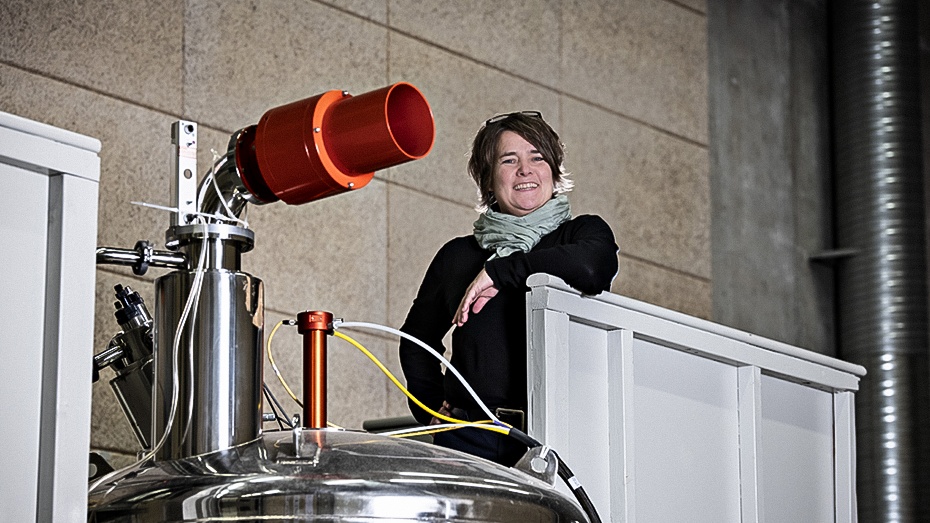Research at the highest level often requires state-of-the-art technology. Now, thanks to grants from the Novo Nordisk Foundation, two researchers at the University of Copenhagen can equip their laboratories with the latest technology.
Birthe B. Kragelund, Professor, Department of Biology, has received a grant of DKK 23.4 million for optimizing the nuclear magnetic resonance (NMR) facilities in the Department. An 800-MHz magnet will be located at the heart of the Structural Biology and NMR Laboratory, and researchers will use this for numerous projects to address fundamental biophysical, biochemical and biomedical questions within protein science.
“Among other things, we will use the instrument to study the structure, dynamics and regulation of proteins in more detail. In addition to researchers in the Department, the instrument will be available for academic and industrial research throughout Greater Copenhagen. The cOpenNMR Laboratory will therefore become a hub for protein science research,” says Birthe B. Kragelund.
Birthe B. Kragelund explains that the importance of NMR spectroscopy in all research disciplines prompted the Faculty of Science of the University of Copenhagen to give top priority to establishing a world-class centre within NMR research on proteins.
The centre is supported by more than 20 researchers from many research fields and from industry, who all need protein chemistry NMR analysis.
Studies of heart functioning in mice and rats
Like Birthe B. Kragelund, Morten B. Thomsen, Associate Professor, Department of Biomedical Sciences is delighted to be able to equip his laboratory with the top instruments within his research field.
One research specialty of Morten B. Thomsen is the heart and circulatory system, and he will use part of the Foundation grant of DKK 8 million to purchase wireless technology for monitoring the functioning of the heart and circulatory system in mice and rats.
Science is facing the daunting task of identifying the functional effects of the thousands of genetic variants found in studies of the human genome in the past decade. This requires instruments that can measure the effect of the same genetic mutations in animal models.
If Danish researchers develop an animal model for an inherited disease or have discovered a new potential treatment, they can use this new facility to investigate how this would affect the heart and circulatory system.
“The project will continue the legacy from the genetic revolution on the physiological level and describe the phenotype in, for example, genetically modified animals. The infrastructure will improve the conditions for research in health sciences at the national level and will be accessible for basic researchers, clinicians and small biotechnology companies in Denmark,” says Morten B. Thomsen.
The Foundation has awarded grants totalling DKK 75 million to purchase advanced laboratory equipment. In addition to the grants to researchers at the University of Copenhagen, the Foundation also awarded grants to researchers at Aarhus University and the University of Southern Denmark. All the grants are conditional on the research infrastructure being made widely accessible to researchers from both universities and industry. Read more about the other grants here.
Further information
Christian Mostrup Scheel, Senior Press Officer, phone: +45 3067 4805, [email protected]








